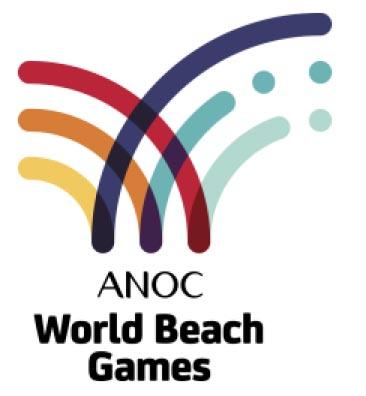
 The World Beach Games are coming to San Diego in 2017. And it’s not surprising if this international multi-sport festival is still under the radar: it’ll be a first for the U.S. although it’s modeled after the Asian Beach Games (which has held four highly successful events so far.)
The World Beach Games are coming to San Diego in 2017. And it’s not surprising if this international multi-sport festival is still under the radar: it’ll be a first for the U.S. although it’s modeled after the Asian Beach Games (which has held four highly successful events so far.)
The Association of National Olympic Committees (ANOC) will organize and produce the inaugural event. Reuters noted the Games combine sports traditionally played on sand (one example would be beach volleyball) with water sports (like windsurfing or open water swimming), as well as sports often played near beaches, such as skateboarding.
According to the website for the Beach Games, the event in the U.S. is said to include beach-based track & field, wrestling, American flag football, beach tennis, beach volleyball, soccer, wrestling, handball, BMX, canoeing, Ultimate, surfing, jet skiing, triathlon, karate, taekwondo, skateboarding, marathon swimming, stand-up paddleboarding, climbing, water polo, windsurfing, e-sports and 3-on-3 basketball – although there is room for more sports to be added.
The event, if it lives up to expectations, would create solid economic impact for San Diego. Inside the Games has stated the World Beach Games could attract up to 5,000 athletes from more than 200 countries. Up to 50,000 spectators would be expected per day at Mission Beach, with an additional 10,000 attending sports held at venues on downtown piers.
So with all this going on, why is the World Beach Games still off the radar of the mainstream sports event planner? Mainly through events that are no fault of its own. After all, a lot of attention (and certainly not all good) is being focused on Rio 2016, as well as on the Zika virus and its impact on travel. In addition, there’s plenty of other distractions, including the FIFA elections, the Super Bowl and March Madness. Oh, and let’s not forget the presidential campaigns.
In short, there’s been a lot to look at in the news.
According to various estimates, the World Beach Games would cost anywhere from $135 million to $150 million to stage, with most of the money being raised by ANOC through marketing and sponsorship and television rights.
The biggest expense, according to the Times of San Diego, would be the $45 million cost of flying the athletes in and accommodating them.
An original plan to house athletes and officials on cruise ships has now been scrapped; current plans include having athletes stay at Hotel Circle, an area in San Diego which includes hotels from many of the major chains.
The San Diego Tourism Marketing District underwrote the successful bid, providing $380,000 toward the event.
The city is banking on these games to cement its image as an international sports venue. San Diego bid unsuccessfully to become the U.S.’s nominating city for the 2024 Olympics and Paralympics; in the bid, San Diego had proposed an arrangement in which it would co-host with Mexican border city Tijuana.
The country’s Olympic hosting hopes are currently pinned on Los Angeles and San Diego organizers are watching the decision-making process closely.
"If Los Angeles fails to win the 2024 Olympic Games, it's obvious we have to do a good job with the Beach Games,” noted Vincent Mudd, chief executive of the San Diego Exploratory Committee.
Previously, it had been announced that the 2019 World Beach Games would be held in Sochi, Russia, and would be organized by umbrella organization SportAccord; however, SportAccord ran afoul of many international governing bodies after its president criticized the IOC. ANOC took responsibility for the event, and it would seem SportAccord is out of the picture.
An article in USA Today contains the information that the World Beach Games are the pet project of ANOC President Sheikh Ahmad Al-Fahad Al-Sabah of Kuwait.

